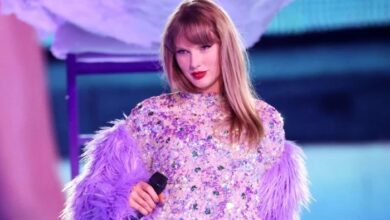Twitter Removes Verified Label from The New York Times Amid Elon Musk Feud

Twitter has once again stripped The New York Times of its coveted blue “verified” checkmark, this time replacing it with a gold “Verified” label, signaling that the news organization is a legitimate business. This abrupt move comes in the wake of repeated criticisms from Elon Musk, the billionaire owner of Tesla and SpaceX. It’s not the first time the Times has faced such a situation; earlier this year, Musk ordered the removal of the blue checkmark when he learned that the publication would not pay for Twitter Blue.
The blue checkmark, which denotes a verified user, has been a subject of controversy on Twitter, with some arguing that it should be reserved for those who actively use the Twitter Blue subscription service. In response to this debate, Twitter introduced the gold checkmark, aimed at verifying the legitimacy of businesses on the platform.
The New York Times is not alone in being affected by these changes. While the Times lost its blue checkmark, other reputable news organizations such as The Washington Post and Fortune continue to display the gold checkmark. This disparity could potentially create confusion among users, especially at a time when the platform is grappling with a surge in misinformation, particularly concerning the ongoing conflict between Israel and Hamas.
Twitter, or “Twitter/X” as it’s referred to in the article, declined to provide a detailed explanation for this latest move, responding with its customary autoreply, “Busy now, please check back later.” This lack of transparency has left many wondering about the reasoning behind the decision.
Elon Musk’s contentious relationship with The New York Times is no secret. Just a couple of months ago, he tweeted that the newspaper supported “calls for genocide” and called for its cancellation. This ongoing feud has once again brought the issue of social media moderation and free speech to the forefront.
Read More: 2023’s Top High Yield Savings Accounts: Where to Grow Your Money
Beyond the back-and-forth regarding Twitter verification, Musk and Twitter found themselves embroiled in another controversy earlier this year. The New York Times reported that traffic to its website was intentionally slowed down, with a delay of approximately five seconds before users could access its stories. Musk, who has identified as a “free speech absolutist,” has been critical of various social media platforms in the past, including Twitter, Bluesky, Substack, Instagram, and Reuters.
In the ever-evolving landscape of social media and online discourse, this latest clash between Elon Musk, The New York Times, and Twitter serves as a reminder of the complex issues surrounding verification, moderation, and free speech on digital platforms.





